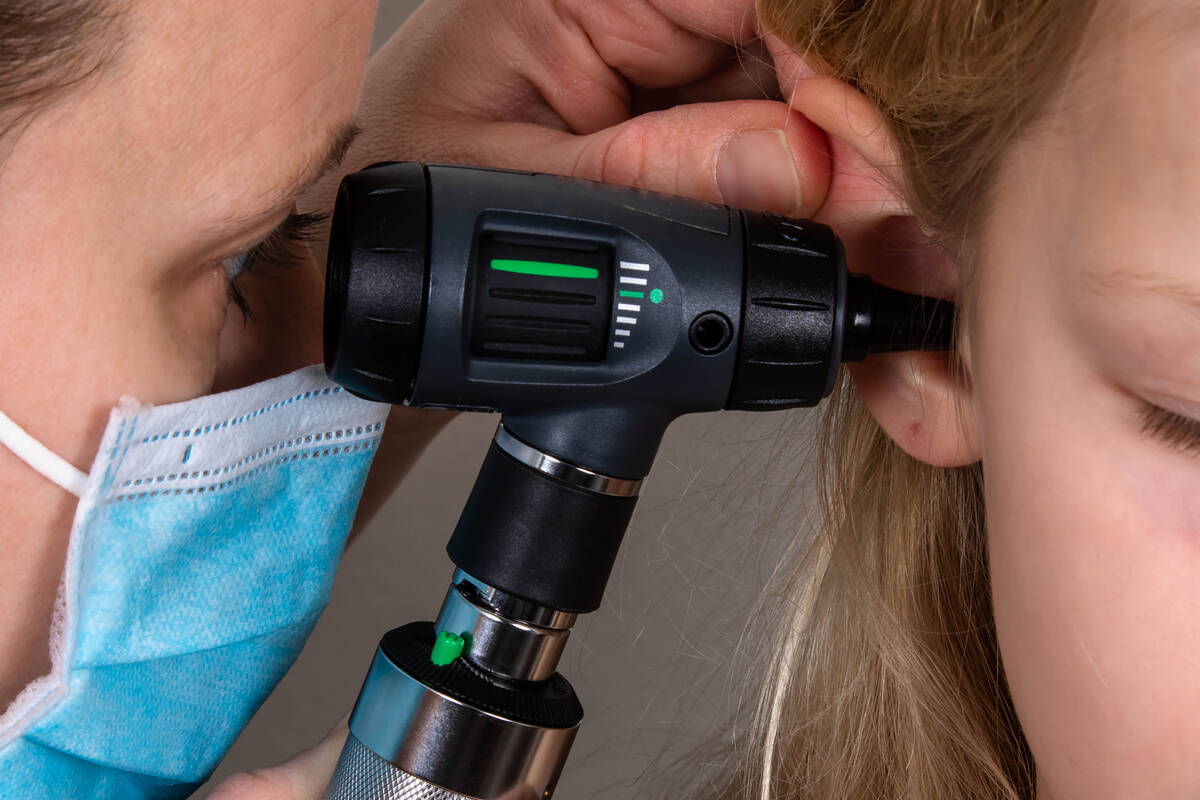Why are some kids prone to ear infections?
Question: My 4-year-old daughter already has had three ear infections this winter. When she isn’t feeling well, our entire family is miserable. The pediatrician says she may continue to get more infections and it is just her body. Why do some kids get ear infections so easily? And is there anything I can do to prevent the infections and help her feel better faster?
Answer: Our ears — home to the smallest bones in the body — are amazing organs. They help us hear and experience the world. They also help maintain balance. They are self-cleaning, and the outer part of the ear never stops growing. Yet, as your family has discovered, ear infections can cause pain and discomfort.
Infections can occur in the middle ear, in the air-filled space behind the eardrum that contains the tiny vibrating bones of the ear. Middle ear infections, which are the most common ear infections, are caused by a bacterium or virus that infects fluid that builds up in the middle ear. Ear infections often are a direct result of a common cold, allergy or other upper respiratory illness. These illnesses are more common during the winter, so ear infections also are most common this time of year.
Children are more susceptible to ear infections because of the size of their eustachian tubes. These are narrow channels inside the ears that allow drainage to the back of the nose and prevent fluid in the middle ear from building up. Children’s eustachian tubes are shorter, narrower and straighter than those of adults. These tubes can become inflamed or irritated, and then they don’t drain appropriately. This results in middle ear fluid building up, which can lead to an ear infection.
Some common signs of an ear infection in children include:
— Ear pain, especially when lying down.
— Tugging or pulling on the ear.
— Trouble sleeping.
— Hearing difficulty.
— Headache or fever.
— Fluid drainage from the ear.
The best treatment for an ear infection depends on many factors, including the age of the child and the severity of the symptoms. Most ear infections clear up on their own within a week without medical treatment.
For many kids, it is recommended to use the wait-and-see approach before prescribing antibiotics for ear infections. For kids 2 and older, antibiotics are not recommended if they have mild inner ear pain in one or both ears for less than 48 hours and have a temperature of less than 102.2 degrees.
Antibiotics may be beneficial for some kids with ear infections. Your health care team can explain the potential side effects and concerns about antibiotics creating strains of resistant disease.
You can lessen your daughter’s pain associated with ear infections by using a warm compress, topical numbing ear drops, and over-the-counter pain medications, such as ibuprofen or acetaminophen.
Ear infections sometimes are unavoidable, especially with small children. But you can reduce your daughter’s risk by:
— Using a hair dryer to dry out her ears after swimming or bathing.
— Encouraging her to wash her hands often.
— Avoiding secondhand smoke.
— Protecting her ears from loud noise by using earplugs.
Don’t use any object to clean out her ears. That can damage the inner ear or skin, lead to bacteria entering the ear canal or cause pain.
Speak with your daughter’s primary care team or pediatrician if she continues to have frequent infections. Some children need ear tubes surgically placed to drain the fluid and prevent infections.
Dr. Luke Andera is an otolaryngologist with the Mayo Clinic Health System in La Crosse, Wisconsin.




























